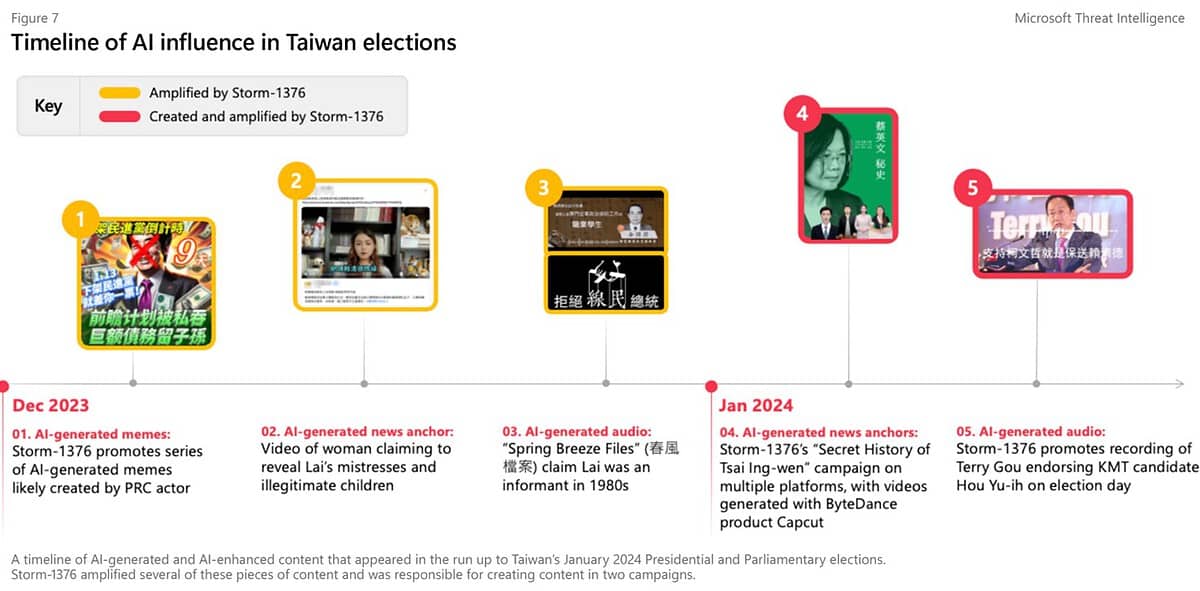Microsoft and OpenAI collaborated to counter North Korean cyber threats, China in the game as well
2 min. read
Published on
Read our disclosure page to find out how can you help MSPoweruser sustain the editorial team Read more
Key notes
- Chinese actors use fake accounts and AI content to sway global opinion.
- North Korea intensifies cyber operations for funding and intelligence.
- China’s geopolitical goals remain firm, leveraging sophisticated influence tactics.

A report by the Microsoft Threat Analysis Center (MTAC) revealed the tactics employed by threat actors from East Asia, particularly China and North Korea. The report, titled “Same targets, new playbooks: East Asia threat actors employ unique methods,” shows the escalating use of deceptive social media accounts, AI-generated content, and cyber operations to influence global affairs.

Chinese Communist Party (CCP)-affiliated actors are using fake social media accounts to pose contentious questions on polarizing U.S. domestic issues, gather intelligence, and exploit divisions among American voters ahead of the U.S. presidential election.
Furthermore, China has increased its use of AI-generated content to influence opinions in the U.S. and globally. From the Maui wildfires to the disposal of Japanese nuclear wastewater, Chinese influence operations have targeted a wide range of topics but with limited success in swaying public opinion.
The report shows China’s unchanged geopolitical priorities, focusing on the South Pacific islands, the South China Sea region, and the U.S. defense industrial base. Chinese influence operations, attributed to the group Storm-1376, have been particularly active, exploiting events such as the Taiwanese presidential election to disseminate AI-generated content aimed at shaping perceptions.
Here are some other cyber attacks Microsoft has talked about in the recent past.

On the other hand, North Korea has increased its cyber operations, focusing mostly on cryptocurrency heists and supply chain attacks to fund its military and intelligence objectives. The report shows North Korea’s significant theft of cryptocurrency funds, estimated at over $3 billion since 2017, and its adoption of AI-powered tools to enhance the efficiency of its operations.
Microsoft and OpenAI have collaborated to counter North Korean cyber threats, including disabling accounts associated with the group Emerald Sleet.
Notably, Microsoft and OpenAI have observed the North Korean actor we call Emerald Sleet using tools powered by AI large-language models (LLMs) to make their operations more effective and efficient. Microsoft partnered with OpenAI to disable accounts and assets associated with Emerald Sleet.
More here.








User forum
0 messages